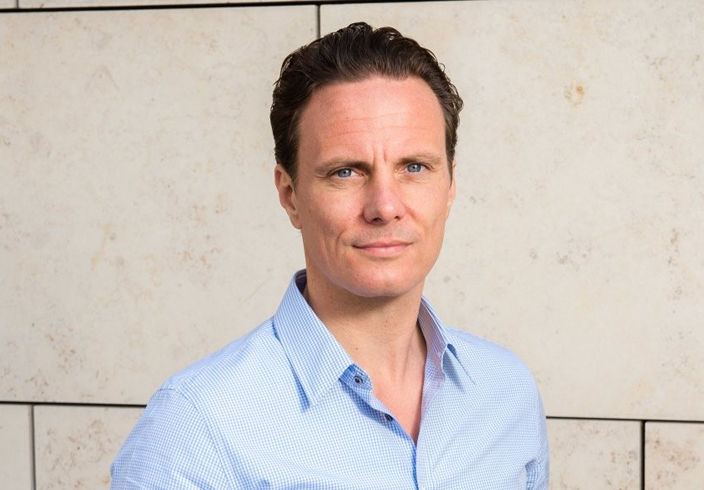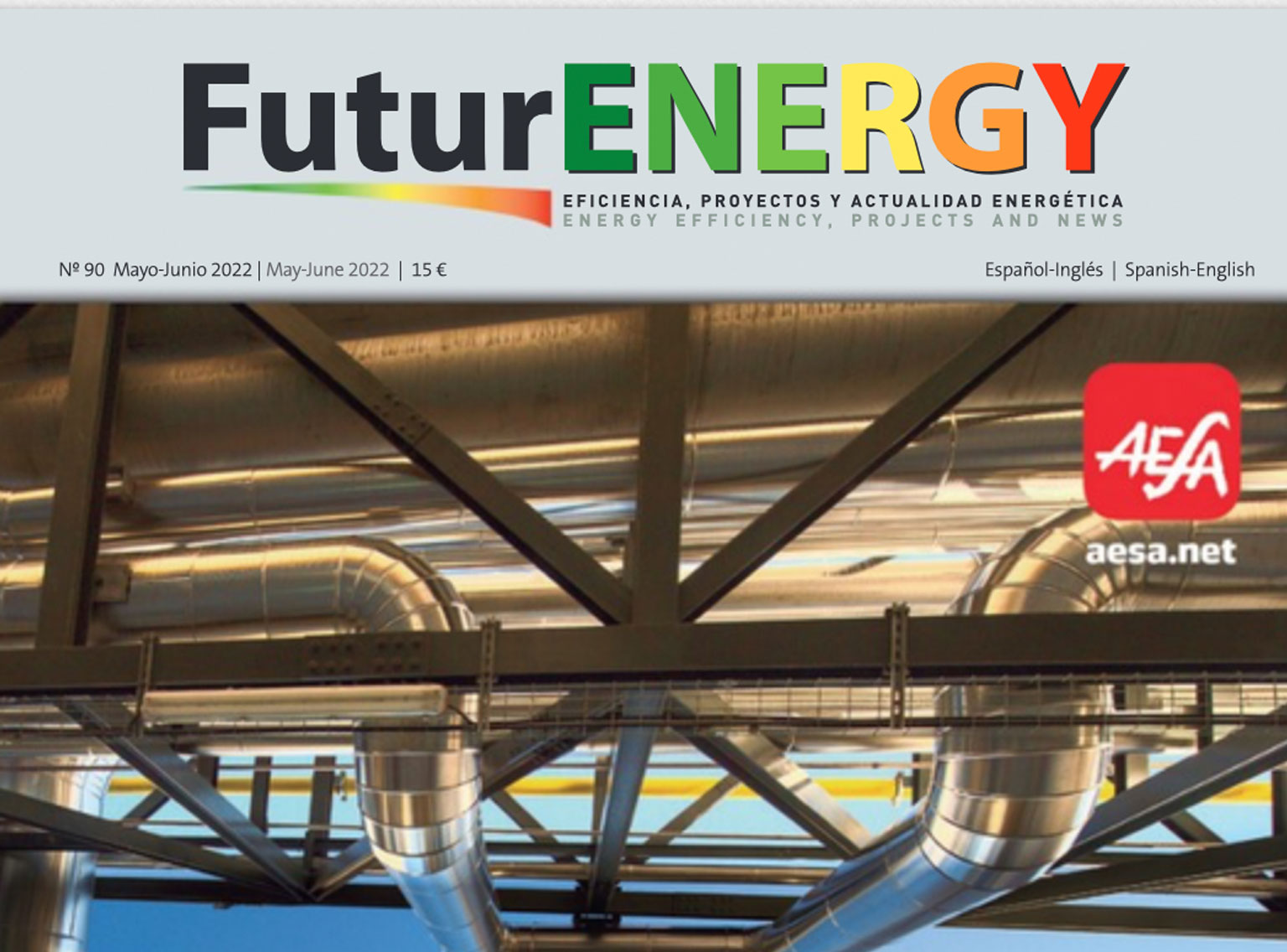Christian Thiel
CEO of the thermal storage manufacturer EnergyNest
By Bent-Erik Scholz
He started at BMW, later becoming a McKinsey consultant and investment banker. Christian Thiel’s impulse to get involved with the energy transition professionally came with Germany’s phase-out of nuclear power. Today, he runs a Norwegian energy storage start-up and eats a vegan diet.
When Christian Thiel answered the phone, he really should have been in Berlin. The Norwegian start-up EnergyNest, which he heads, is among the 15 finalists of the 570 applicants for the SET Award 2020, an international competition for start-ups with ideas for the energy revolution, organised by the German Energy Agency. But like so many other events, the SET Week, which began on Monday and at the end of which the 10,000-euro prize is awarded, is also taking place digitally due to the corona crisis.
Under normal circumstances, Thiel would also travel regularly to customers. EnergyNest manufactures thermal batteries. These can store excess heat and make energy available with a time delay. In this way, CO2 emissions can be prevented. Comparable offers are also available from other companies. The Berlin start-up Lumenion, for example, also produces thermal energy storage systems and is currently implementing a pilot project in Berlin in which heat is stored in steel. Thiel is pleased that other young companies are also active in his field. “That means that there is a market. However, we are currently the only ones who are already selling and building these storage units commercially,” says the EnergyNest boss.
At BMW, he was part of a machine, today he has a mission.
Due to measures to contain the corona pandemic there were also restructurings at EnergyNest necessary. But the North German is dealing with this in a confident manner. “We had a good experience in the lockdown in spring,” says the 43-year-old. “With a little creativity you can do amazing things.” After a brief production pause, the company recently completed its first two modules for an Italian customer in the Netherlands – in compliance with hygiene regulations.
After six years in the CEO position of the Norwegian start-up in Billingstad near Oslo, Thiel had to have his first tour of a plant via video chat, due to corona. The aim is to gather information about a plant where an EnergyNest storage system is to be installed. Under normal conditions, the planning for the installation of a storage unit would be discussed on site. Thiel is dealing with allowing the start-up to grow, handling projects and finding new customers. “It no longer feels like work, but more like a mission – surrounded by people pulling together,” he says. “No games, just a common goal in sight,” says Thiel.
Before joining EnergyNest, Thiel worked for other companies, including BMW. “It was an exciting time at the beginning of the 2000s,” he sums up the automotive sector. He completed a dual course of study to become an industrial clerk and then continued working at BMW. However, he lacked creative development opportunities there: “The positive thing about working for a corporation like BMW is that you are a small part of a complex machinery. The negative is that you are a small part of a complex machinery”.
The phase-out of nuclear power led to a rethink
Prompted by the German nuclear phase-out, he developed an interest in the energy transition and its technical aspects. After further stations, including at McKinsey and UBS Investment Bank, he applied for a job at EnergyNest in 2014. There, as CEO, he now has the development opportunities he needs for his work. “I basically went to smaller and smaller companies, but with each move I had ever greater freedom to get involved,” says Thiel.
Christian Thiel also engages with these issues in his private life. His ecological awareness developed with his professional activity. He tries to avoid CO2-intensive foods from the meat and dairy industries. Thiel now lives vegan with his family. Instead of two vehicles, his family now only has one city car. Their holiday destinations are now more often on their own continent. Thiel even forgoes imported wines. “German wines taste quite good too,” he says.
What will save the climate? Politics or the individual?
Both, with the individual leading the way. Through active measures and concrete demands from individuals and companies, politicians can be made aware of problems and the solutions to them. Politicians, in turn, have the means to create the legal framework in which targeted measures are implemented on a broad scale as new standards.
Which flight would you never miss?
Privately, I have no difficulty giving up flights. You can also go on holiday by train or car. As far as my job is concerned, I would not want to give up flights, which are advancing our technology and can therefore offer a new solution to the CO2 problem. These include my flights to Oslo to the EnergyNest headquarters or to customers. With the savings from our thermal battery, we can more than compensate for these flights. But the Corona crisis has also shown us that we can do without many flights. We have increasingly resorted to virtual possibilities where this was previously unthinkable. I hope that this will enable us to replace further flights in the future.
Who in the energy and climate world has impressed you?
When I think back, I was won for the subject by Dr Mojib Latif, who explained climate interrelationships very early on. But from a CEO’s point of view, I was also impressed by Elon Musk. As a CEO, you can take a leaf out of his book, which he imbues with progressiveness and a certain aggression.
What idea will give the energy revolution new momentum?
Quite honestly, I believe it’s ours. With thermal storage, we are advancing energy system transformation in those areas where progress has been least advanced so far. To date, we have understood energy system transformation to mean building solar systems on roofs and installing wind turbines everywhere. Although we have achieved 50 percent green electricity to date, as a result we pay one of the highest electricity prices in the world in Germany and have made little progress in other sectors. There is enormous potential in the storage of heat to massively reduce CO2 emissions by simple means. And we also need less energy as a result.



